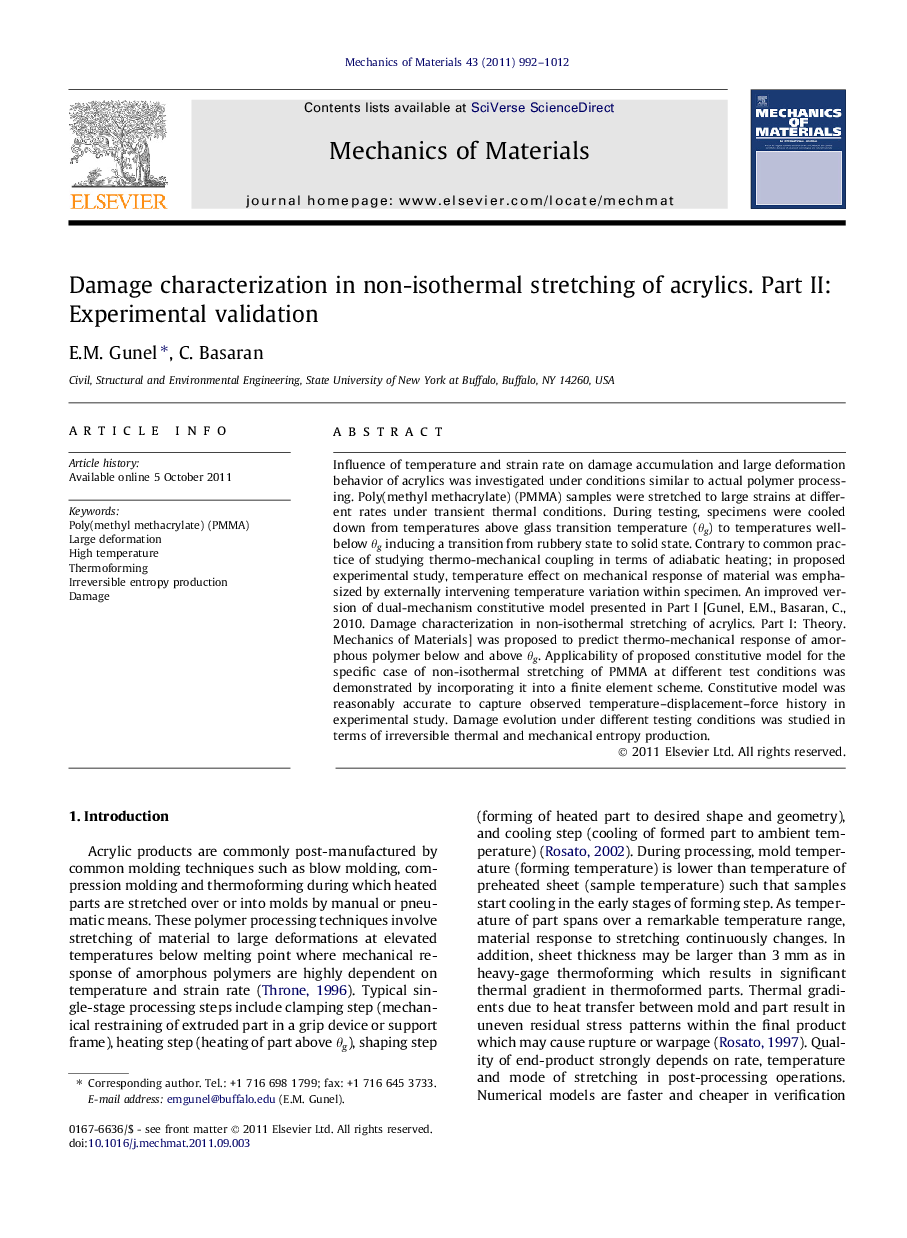| کد مقاله | کد نشریه | سال انتشار | مقاله انگلیسی | نسخه تمام متن |
|---|---|---|---|---|
| 799909 | 1467498 | 2011 | 21 صفحه PDF | دانلود رایگان |

Influence of temperature and strain rate on damage accumulation and large deformation behavior of acrylics was investigated under conditions similar to actual polymer processing. Poly(methyl methacrylate) (PMMA) samples were stretched to large strains at different rates under transient thermal conditions. During testing, specimens were cooled down from temperatures above glass transition temperature (θg) to temperatures well-below θg inducing a transition from rubbery state to solid state. Contrary to common practice of studying thermo-mechanical coupling in terms of adiabatic heating; in proposed experimental study, temperature effect on mechanical response of material was emphasized by externally intervening temperature variation within specimen. An improved version of dual-mechanism constitutive model presented in Part I [Gunel, E.M., Basaran, C., 2010. Damage characterization in non-isothermal stretching of acrylics. Part I: Theory. Mechanics of Materials] was proposed to predict thermo-mechanical response of amorphous polymer below and above θg. Applicability of proposed constitutive model for the specific case of non-isothermal stretching of PMMA at different test conditions was demonstrated by incorporating it into a finite element scheme. Constitutive model was reasonably accurate to capture observed temperature–displacement–force history in experimental study. Damage evolution under different testing conditions was studied in terms of irreversible thermal and mechanical entropy production.
► Large-deformation response of poly(methyl methacrylate) under non-steady thermal conditions.
► Effect of glass transition on mechanical response of material.
► Non-isothermal stretching at temperatures spanning above and below glass transition.
► Failure predicted based on irreversible mechanical entropy production.
► Increased damage in polymer processing with decreasing forming rate and temperature.
Journal: Mechanics of Materials - Volume 43, Issue 12, December 2011, Pages 992–1012